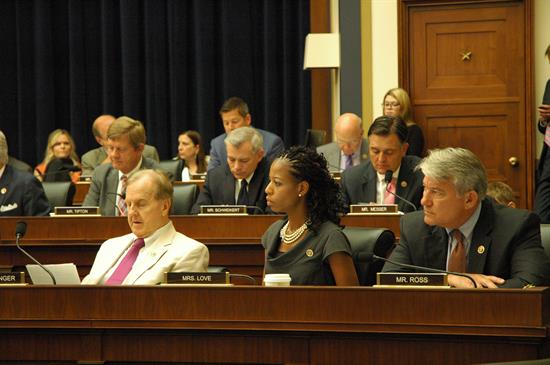Committee Kicks Off Series of Hearings Marking Dodd-Frank Anniversary
Washington,
July 9, 2015
The House Financial Services Committee on Thursday began its series of hearings on the impact the Dodd-Frank Act has had on consumers, financial markets and the U.S. economy over the five years since President Obama signed it into law. Thursday’s hearing focused on how the massive 2,300-page law and its 400 new regulations are a threat to the financial stability of the U.S. Chairman Jeb Hensarling (R-TX) said in his opening statement, "What is undebatable is the fact that since the passage of Dodd-Frank the big banks are now bigger; the small banks are now fewer. In other words, even more banking assets are now concentrated in the so-called “Too Big to Fail” firms. Pray tell, how does this improve financial stability?" Key Takeaways from the Hearing:
Topline Quotes from Witnesses: “After five years has Dodd-Frank made American families better off? No. Instead, the overall impact of Dodd-Frank has been to slow our economic recovery, raise prices, reduce choice, and eliminate access to the financial mainstream for American families. And low-income Americans have been hit the hardest.” - Todd Zywicki, Professor of Law at George Mason University and Mercatus Center Senior Scholar “After the bill that was to become Dodd-Frank was reported out of the Conference Committee, Chris Dodd famously said, ‘No one will know until this is actually in place how it works.’ Five years later we still do not know the full effects the Dodd-Frank Act will have on U.S. capital markets. We do know, however, that the costs of Dodd-Frank have been borne not just by Wall Street, but by ordinary investors and businesses of all shapes and sizes.” - Paul Atkins, former Commissioner, U.S. Securities and Exchange Commission “Although a few modest improvements have been made to increase financial stability, I believe Dodd-Frank, no net, has reduced financial stability. The reason for such is a combination of both errors of commission and omission. Moral hazard has been increased by Dodd-Frank’s expansion of the financial safety net and increased concentration of risk into fewer entities, while the primary 18 causes of the crisis were largely left untouched. I fear if we continue along our current path, we are almost certain to see another financial crisis sometime in the next decade.” - Mark Calabria, Director of Financial Regulation Studies, Cato Institute |


